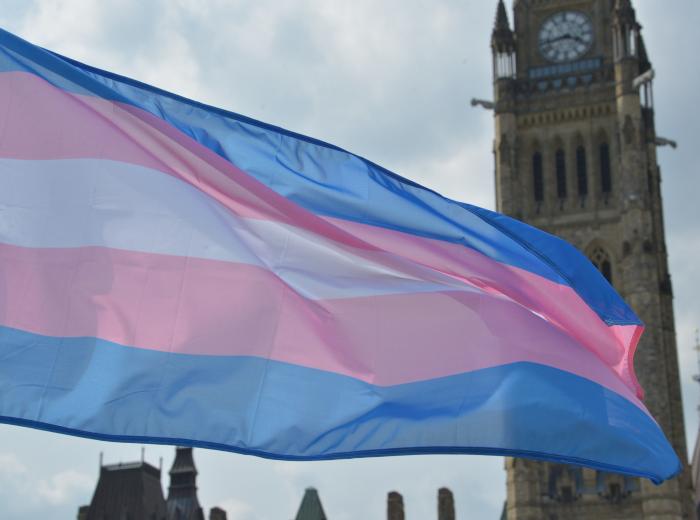
PSAC is committed to recognizing and celebrating the contributions of union members from Two-Spirit, lesbian, gay, bisexual, transgender, queer, intersex, asexual, and gender non-conforming communities.
The fight for 2SLGBTQIA+ rights is far from over
2SLGBTQIA+ communities continue to face discrimination and harassment at work and in their daily lives:
- Due to stigma, discrimination, homelessness, and poverty many 2SLGBTQIA+ people cannot access adequate healthcare, and as a result cannot get life-saving drugs
- Trans people continue to have limited access to gender affirming care, and this has only worsened throughout the pandemic
- Many workplaces fail to provide gender inclusive washroom facilities
- Though the ban on blood donations from men who have sex with men has been recently lifted, discriminatory practices persist, adversely impacting members of 2SLGBTQIA+ communities
PSAC has long campaigned for 2SLGBTQIA+ rights. Eradicating homophobia and transphobia in workplaces and advocating for the full protection of 2SLGBTQIA+ members continue to be priorities for our union.
We have had many collective bargaining victories, including:
-
No discrimination based on sexual orientation: In PSAC’s first Master Agreement with Treasury Board in 1986, sexual orientation was included as a prohibited ground of discrimination. This was a key step towards demanding basic human rights in the workplace.
-
Same sex spousal benefits: Through a PA (Program Administration) collective agreement providing for an inclusive definition of “common-law partner.” PSAC continues to push for non-heteronormative language that is inclusive of same-sex partnerships.
-
Spousal union leave: First in 1998, the union negotiated spousal leave for gay and lesbian couples at the Museum of Science and Technology, the National Art Gallery, the Canadian Museum of Nature, and at Canada Post. Before the Marriage Act was amended in 2005 to include queer couples, PSAC negotiated spousal leave in collective agreements. In 2006, marriage leave was extended to queer couples for all CRA (Canada Revenue Agency) bargaining units.
-
Gender identity: PSAC continues to advocate for language that protects against discrimination based on gender identity and gender expression. We are proud to have released a Gender Inclusive Language Toolkit to help members, elected leaders, and staff interact in ways that respect and celebrate diverse gender identities.
-
Spousal leaves of absence: In 1993, PSAC successfully argued that a member with a same-sex spouse should be provided spousal-related leave as outlined in collective agreements. Importantly, a heteronormative view of care work is not only discriminatory, but also perpetuates gender-based inequality.
-
Spousal benefits: PSAC members Dale Akerstrom filed a complaint with the Canadian Human Rights Tribunal when his spouse was denied Public Service Health Care and Dental Plan benefits. This led to a historic Supreme Court of Canada decision in 1995 that ordered the employer to stop discriminating against workers based on a heteronormative definition of spouse.
-
Pension plan survivor benefits: Beginning with a letter in 1992 from former PSAC president Daryl Bean to a Supreme Court decision in 1999, PSAC has challenged the discriminatory practice of queer couples being denied survivors’ benefits.
Moving forward, our union is committed to the fight for inclusive and safe workplaces.
We will continue to:
- Bring issues affecting 2SLGBTQIA+ workers to the bargaining table
- Fight to include HIV prevention medication and gender-affirming hormone therapies in extended health plans
- Advocate for gender inclusive washrooms in workplaces
- Demonstrate solidarity with our gender-diverse members by respecting pronouns, names and identities


 Member Login
Member Login


